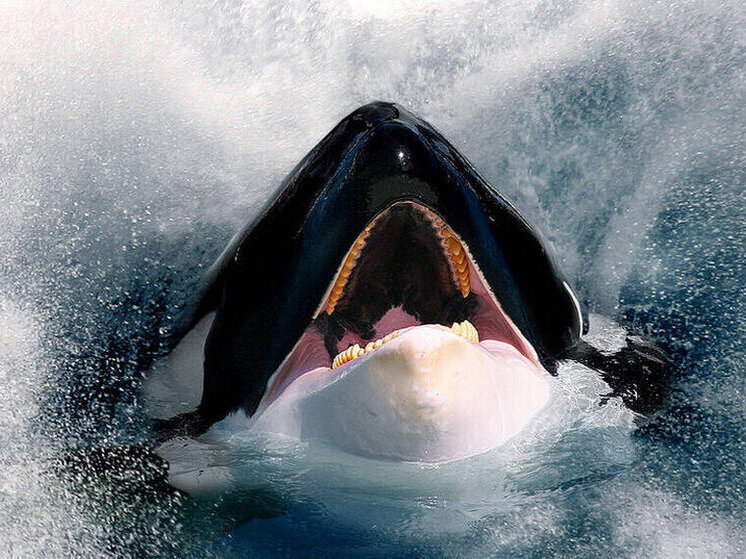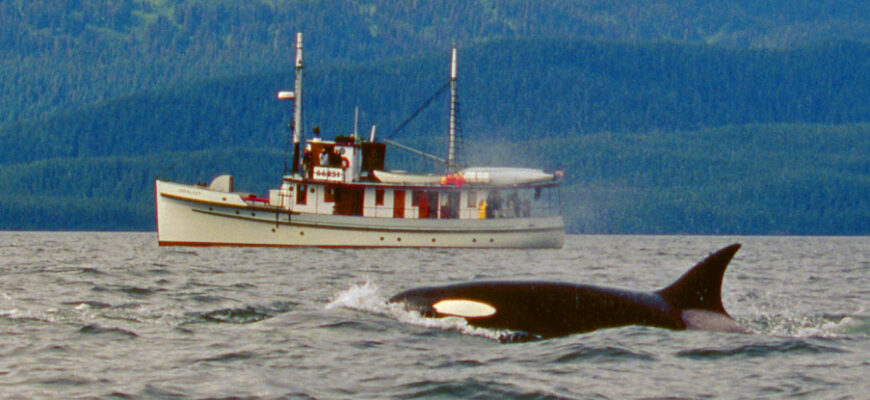A strange and unsettling pattern has emerged in the waters off Europe`s Iberian Peninsula: pods of orcas are actively targeting and disabling boats, leading to an increasing number of sinkings. What drives these highly intelligent marine predators to engage in such unprecedented behavior?

Photo: H. Schmidbauer/blickwinke/lGlobal Look Press
For half a decade, sailors navigating the busy shipping lanes and picturesque coastlines of Spain, Portugal, and now, increasingly, France, have been encountering an adversary unlike any other. Not storms, not rocks, but highly coordinated attacks by orcas, more commonly known as killer whales. These majestic marine mammals, celebrated for their intelligence and complex social structures, have seemingly declared a peculiar form of maritime warfare against human vessels.
A Growing Threat: The Numbers Tell a Tale
The incidents began subtly five years ago, often reported as mere interactions or curiosity. However, the frequency and aggression have escalated dramatically. Recent data indicates nearly 30 reported incidents of orca-boat encounters in the affected regions. More alarmingly, at least six vessels have been confirmed sunk following these deliberate attacks. The targets are predominantly sailboats, suggesting a specific vulnerability or perhaps a preference for certain rudder designs.
One of the latest harrowing events saw two sailors rescued by the Spanish coast guard off the Basque Country after their vessel was severely damaged by a pod of orcas. Such rescues are becoming an unfortunate routine for maritime authorities in the region.
The “Revenge” Hypothesis: An Ocean`s Retaliation?
Scientists and marine biologists are grappling with the perplexing nature of these incidents. While orcas are apex predators, aggressive interactions with boats leading to their deliberate disabling are highly unusual. The leading hypothesis gaining traction among experts suggests a motive rooted in retaliation.
“It’s not typical killer whale behavior,” notes a marine expert, reflecting the widespread astonishment in the scientific community. “The most compelling theory posits that a specific female orca, potentially injured by human activity – perhaps entangled in illegal fishing gear – initiated this behavior. Other orcas in her pod, especially younger ones, may have learned and adopted it.”
This theory paints a fascinating, if concerning, picture of interspecies communication and learned behavior. If a matriarch or a key member of a pod was harmed, the subsequent coordinated attacks could be interpreted as a form of defense or even, dare one say, vengeance. It`s a stark reminder that the ocean, and its inhabitants, are not merely passive entities in our world.
Geographical Spread and Future Concerns
Initially concentrated around the Strait of Gibraltar, a critical choke point for shipping and a rich hunting ground for orcas, the “problem pod” (or pods) appears to be expanding its operational range. Incidents are now being reported further north along the Portuguese and French coasts, indicating a worrying geographical expansion of this learned behavior.
This expansion raises serious concerns within the international maritime community. If the trend continues, sailors in wider European waters, including potentially those near Britain, could soon face similar risks. The economic implications for yachting and commercial fishing, let alone the safety of human lives, are significant.
Living with the Leviathans: What Now?
For now, sailors are advised to exercise extreme caution in affected areas. Various strategies are being discussed, from implementing exclusion zones to developing deterrents, though the latter poses ethical challenges concerning marine wildlife. The ultimate goal is to understand and mitigate this unprecedented human-orca conflict without resorting to measures that would harm these magnificent creatures.
The saga of the boat-sinking orcas serves as a powerful, if somewhat ironic, narrative. It highlights the complex, often unpredictable, relationship between humanity and the natural world. Are these attacks a random anomaly, a collective tantrum, or a calculated response from the ocean`s most intelligent predators? Whatever the true motive, one thing is clear: the sea, in its vastness and mystery, still holds surprises, and sometimes, those surprises bite back.









